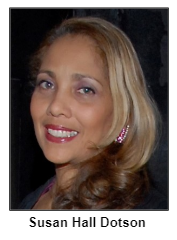Jan 25, 2019
(January 19, 2019) Both before he became a household name nationally and after he was a famous public figure, Rev. Martin Luther King Jr. made trips to Indiana. How those visits during the 1950s and '60s unfolded, where Rev. King stayed and other details, are the focus of our show that aired two days prior to Dr. Martin Luther King Jr. Day.

Nearly 10 years earlier, in 1958 when he was a young minister and civil rights leader in the South, 29-year-old Dr. King spoke in downtown Indianapolis at Cadle Tabernacle, a sprawling, Spanish-style structure that served as the site of conventions, religious gatherings, music concerts and a range of other events. Cadle Tabernacle, which was located at Ohio and New Jersey Streets, was demolished during the late 1960s.
In the decade between that speech and the talk at Manchester College near the end of his life, Dr. King periodically visited Indianapolis, often staying with the family of his close friend Rev. Andrew J. Brown (1921-1996), pastor of St. John's Missionary Baptist Church. Rev. Brown, one of Indiana's most prominent civil rights leaders of the era, marched with Dr. King in Selma, Ala., in 1965.
For our exploration of Dr. King's trips to Indiana - which also included a speech at Goshen College in 1960 - our studio guests are:
- Rev. Thomas Brown, a professor at Martin University, radio host on WTLC-AM (1310) and the son of Rev. Andrew Brown. Because of the friendship between his father and Dr. King - as well as Rev. Thomas Brown's own civil rights work in Selma - he got to know Dr. King on a personal basis. Rev. Thomas Brown is the retired pastor of Ebenezer Missionary Baptist Church.
- Historian David Leander Williams, an adjunct professor at IUPUI. David has been a previous guest on Hoosier History Live when we have explored aspects of African-American history, including the jazz music scene that flourished along Indiana Avenue during the mid-20th Century. David is the author of a new book, Indianapolis Rhythm and Blues (Arcadia Publishing).
- And Susan Hall Dotson, coordinator of African-American history for the Indiana Historical Society. Susan discussed Dr. King's visits and related topics during a day-long series of events Jan. 21 at the Indiana History Centerin Indianapolis to celebrate MLK Jr. Day.
 Accounts about Dr. King's speech at Goshen College, which
is affiliated with the Mennonite Church, describe it a
"spellbinding lecture." The speech, which he delivered in 1960,
occurred about one year after he had traveled to India to study
Gandhi's techniques of nonviolence.
Accounts about Dr. King's speech at Goshen College, which
is affiliated with the Mennonite Church, describe it a
"spellbinding lecture." The speech, which he delivered in 1960,
occurred about one year after he had traveled to India to study
Gandhi's techniques of nonviolence.
At Goshen College, Dr. King discussed nonviolence. He also called on religious leaders to more strongly advocate for civil rights; Dr. King described most churches across the country as "segregated islands."

Rev. Andrew Brown was active in the Southern Christian Leadership Conference (SCLC), a civil rights advocacy organization; Dr. King served as its first president. Today, Rev. Thomas Brown is president of the Indiana Christian Leadership Conference, an affiliated chapter.
Just as streets have been named in honor of Dr. King in many Indiana cities - including Indianapolis, Evansville, South Bend, Gary and Elkhart - a street on the near-eastside of Indy was named Dr. Andrew J. Brown Avenue in 1986. In addition to serving as pastor of St. John's Missionary Baptist Church, which is located on the street named in his honor, Rev. Andrew Brown was one of the primary organizers of Indiana Black Expo during the early 1970s.